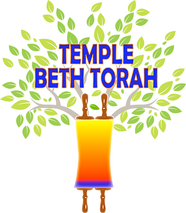January 31, 2025
The moment of redemption has finally arrived. This week, our parashah is Bo, which literally means “Come,” but should really be called “Lech,” “Go!” We read about the last three plagues, about Pharaoh finally, finally allowing the Israelites to leave, and, in midst of this dramatic narrative, we also receive the laws for Passover. Before the event has even fully occurred, we have instructions on how to remember and reenact it! It’s as if the Torah is saying, “Pay attention! You’re going to want to remember this!” And indeed, the importance of the exodus cannot be overstated. The exodus is the defining experience of the Jewish People, the experience that made us into a people. The act of liberation defines our relationship with one another and our covenant with God. At Mount Sinai, God identifies God’s self:
“אָֽנֹכִ֖י֙ יְהֹוָ֣ה אֱלֹהֶ֑֔יךָ אֲשֶׁ֧ר הוֹצֵאתִ֛יךָ מֵאֶ֥רֶץ מִצְרַ֖יִם מִבֵּ֣֥ית עֲבָדִ֑͏ֽים׃
I יהוה am your God who brought you out of the land of Egypt, the house of bondage” (Ex. 20:2). What’s more, our identity as a people who were once strangers in a strange land is the basis for the Jewish obligation to protect the vulnerable, informing our moral obligations to this day.
The exodus is a story about us, written almost exclusively in the plural. Four times in the Torah, including three in this week’s parashah, the Israelites are commanded to teach their children about the experience as a communal event. We read, “It is the passover sacrifice to יהוה, who passed over the houses of the Israelites in Egypt when smiting the Egyptians, but saved our houses” (Ex. 12:27) and “It was with a mighty hand that יהוה brought us out from Egypt, the house of bondage” (Ex. 13:14), and from Deuteronomy, “You shall say to your children, ‘We were slaves to Pharaoh in Egypt and the Eternal freed us from Egypt with a mighty hand’” (Deut. 6:21). But one instance is different: “And you shall explain to your child on that day, ‘It is because of what יהוה did for me when I went free from Egypt’” (Ex. 13:8). Asah Adonai li, God did for me, not us.
The Sages took these four passages and created the midrash known in the Haggadah as the Four Sons or Children: the wise, the wicked, the simple, and the one too young to ask. They see the use of the singular in “because of what God did for me” in a decidedly negative light. “The wicked son what does he say? ‘What is this service to you?’ ‘To you,’ he says, not to him. When he sets himself apart from the community, he denies the very core of our beliefs. And you must set his teeth on edge and tell him, ‘Because of this the Eternal acted for me when I came out of Egypt.’ ‘For me,’ and not for him; had he been there he would not have been redeemed” (Haggadah, Maggid section). In the rabbinic mind, the switch from plural to singular is only in response to a wicked child who has already separated himself from the community. Putting “I” before “we” can only be a sin.
I think, though, that our anomalous verse has more to teach us. Let’s take a closer look.
בַּעֲב֣וּר זֶ֗ה עָשָׂ֤ה יְהֹוָה֙ לִ֔י בְּצֵאתִ֖י מִמִּצְרָֽיִם
“Because of this God did for me when I went out of Egypt.” If this sentence makes no sense to you, you’re in good company. The verse can’t be easily translated. I won’t go into a complicated explanation of Hebrew grammar, but the best way to understand it is to read it, “Because of this, God took me out of Egypt.” The “this” is usually interpreted to refer to mitzvot, either the commandments of Passover or commandments in general. In other words, it’s a statement of purpose. God brought me out of Egypt so that I could serve God. That’s why throughout the exodus story, Moses tells Pharaoh that God commands, “Let My people go that they may serve me!” But the beauty of our verse is in its vagueness. Ba’avur zeh, because of “this,” some unnamed or unknown “this,” God has made me, and made me free, so that I can discover it. Now we understand why this verse is in the singular. For as much as Judaism focuses on communal identity and action, there is still a place and a need for personal spirituality. This verse offers each of us a challenge: to search for our unique zeh, the “this” for which we were made, the “this” that the world desperately needs in order for redemption to be complete.
_edited_edited.png)